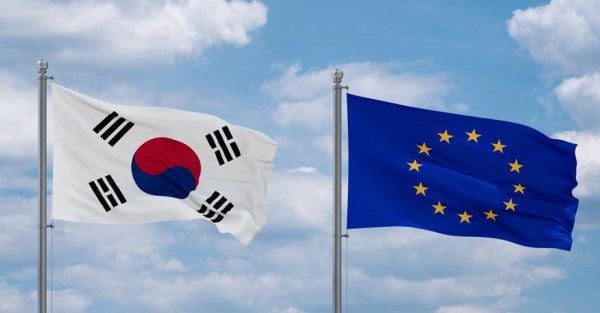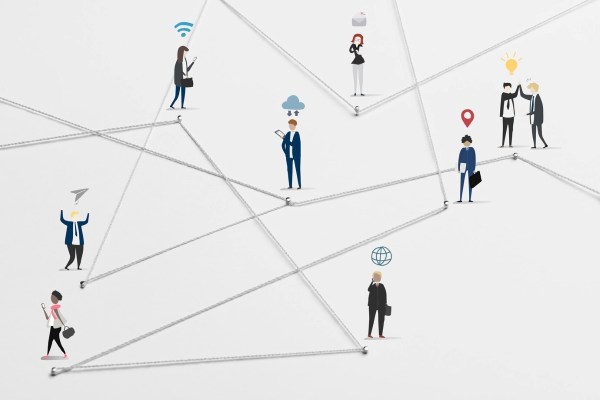 Christoph Steck /@christophsteck
Christoph Steck /@christophsteck
Director of Public Policy and Internet at Telefónica
 The innovation wave that flows from the digital sphere presents companies and policymakers with a series of benefits but also challenges. It has forced many sectors to innovate in order to better compete worldwide. The telecommunications sector has been one of the first sectors which have felt the power of digital disruption, but all others will follow sooner or later. Unquestionably digital competition is improving our companies and our economies, making them more productive and competitive. However, fairly regulating this rapidly evolving sphere and fostering an environment that enables true competition, requires a radical rethinking of approach on behalf of policymakers, in much the same way as also companies need to fully change its approach.
The innovation wave that flows from the digital sphere presents companies and policymakers with a series of benefits but also challenges. It has forced many sectors to innovate in order to better compete worldwide. The telecommunications sector has been one of the first sectors which have felt the power of digital disruption, but all others will follow sooner or later. Unquestionably digital competition is improving our companies and our economies, making them more productive and competitive. However, fairly regulating this rapidly evolving sphere and fostering an environment that enables true competition, requires a radical rethinking of approach on behalf of policymakers, in much the same way as also companies need to fully change its approach.
There is a fundamental policy issue because outdated regulation or lack of implementation of rules create a situation in which the same services are not tackled in the same way by regulators. Many of us in the telecommunications industry believe that consumers deserve the same protection regardless of the company providing the service, its legal settlement location, or the location where the consumer is accessing the service from. A level playing field across the digital ecosystem is a prerequisite for guaranteeing user’s rights while providing fair competition between companies and services. Today, consumers use Internet services as substitutes to traditional media and communication services. From a user perspective what is the difference between a WhatsApp message and an SMS? Or between a Skype call and one from a mobile? Nevertheless, the regulations to protect consumers’ data are completely different for both.
For affected businesses to demand an end to such unjustified, asymmetric policies does not equal protectionism. If a taxi driver in Brussels, Madrid or London were to complain that they must pay a huge sum for their licences, while a new digital company’s service has no obligation to do the same and then offers cheaper service, that is a fair complaint which needs to be addressed. Policymakers need to find the right balance of regulation.
To do so, policymakers should first analyse the new dynamics of the market, and then consider if the existing regulations are still necessary. Do you still need national quota for television when you can access virtually any movie ever made easily online? Second, they should design future proofed policies. The digital environment is changing so fast that an attempt to legislate on every aspect of it will create market distortions and negative effects on both consumers and companies. Instead, policymakers should give guidance to markets, set clear borders on what is allowed and what isn’t, and allow the markets to grow and experiment within these parameters.
The digital economy is global. However, the economic or legal culture differs from one region to another. Europeans, for example, determine their laws on the basis of what they deem permissible in view of our traditions. These might not be exactly the same on issues like privacy or competition as they are in other parts of the world.
The litmus test for this might prove to be how European policymakers react to the growing dominance and abuse of digital platforms. For companies, this emergence of platform-based ecosystems presents perhaps the biggest challenge. Any company can create a mobile application for example, but there are only two companies in the world with the proprietary platforms where you can run that application on: Android and iOS. This mobile/smartphone environment, is markedly different to the older internet environment of the 1990s, where Google was able to found a company out of a garage based on an internet of open standards, accessible domain names and other factors that were favourable to scaling a company up quickly. Today the environment is much less dynamic with just a few big platform providers that have created whole ecosystems and have the financial muscle to stay ahead, even just by buying the smaller, more innovative and faster growing competitor – like Facebook and WhatsApp.
What can we do? We need to be honest in Europe and admit we’ve missed the first wave of digitisation. It is highly unlikely that Europe is going to create another relevant search engine, that was yesterday and we must think about the future. We are getting more digital and entering into a hyper-connected ‘internet of things’. All industries are becoming digitalised, so called ‘Industry 4.0’. For Europe to assume an important position in this realm, we need to address issues of scale. One of the key reasons this continent currently lags behind is that we do not have a common market on the same scale as the US or China where services can reach a far greater number of people. Meanwhile, if you create a service in German, or Dutch, due to language and regulatory restrictions you will be far more limited in reach. We need to create a bigger scale in Europe and this can only be done by creating a common market and rely more on other mechanism to reach scale, like the introduction of common standards.
Additionally, digital skills are essential for seizing the opportunities that digitisation of our societies present. Policymakers and educational organisations should, therefore, foster an entrepreneurial environment in Europe and ensure that European are digitally educated. Silicon Valley, Korea and China among other places, have grasped that the digital education of the population equals economic power now and in the future. There is little doubt that software will come to rule the world. We are going to live in an algorithm-driven economy that will affect every part of our industry. Still, there are many thousands of talented European mathematicians coming out of our universities that have never learned that algorithms are today steering whole economies.
We need to be conscious that building a fantastic car is not sufficient, soon it will be simply a piece of metal driven by the intelligence wired by others. That is why we should embrace new tendencies favouring smart solutions and internet of things innovations. It is good to see that the European Commission and national governments are doing a much better job now of putting digital education and the fostering of entrepreneurial spirit high on their agenda.
The world wide web was born European. A British scientist created it, Tim Berners-Lee, in Geneva at CERN. However, its commercial power was identified first by US entrepreneurs and later by Chinese companies. The world wide web as it was initially conceived, was a place of open standards, interconnected services, and open for all to access. These are not the properties of the increasingly mobile internet we see today, which is based on proprietary platforms, which lock customers in and competitors out, and where everything is apparently free, while users pay with their data.
It is time for Europe, its companies, policymakers and societies, to embrace the digital world but to also stay firm on their beliefs, their traditions and views. And, who knows, this might even bring back some of the original values of openness, inclusiveness and innovation the Internet has lost.
This post has originally been published on the European Council on Foreign Relations web page.












